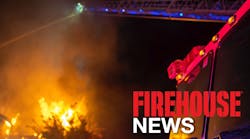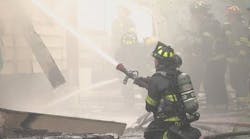Concepts such as accountability, span of control and delegation, though present in bygone days, were not dwelled upon. Firefighters simply did what they knew how to do and the rest was sorted out after the fact. In business, where profit is king and efficiency is paramount, management models have made their way out of Wall Street into the mainstream fire service. Slowly, we are moving away from governing bodies looking for the stereotypical “strong backs and weak minds” to recruit into the fire service. The trend of seeking out potential members who display leadership qualities is becoming more prevalent each year that passes.
What are some issues that need to be addressed today so that the future can be better?
1. Face the fact that “the best firefighter may not be the best fire officer.” We spend hour upon hour training and retraining to perform the physical acts of our job and leave the management aspect flagging. The challenge for every fire chief is to step up his or her efforts in preparing the younger members of their departments for positions of authority before they need them. Training and education in the skills needed to manage and supervise people are important; so important that these skills should be obtained, practiced and ingrained prior to entertaining any offer of promotion.2. Actively seek ways to improve your department by putting its resources to use. The rank and file of most departments can and will produce correct solutions to problems that plague that department. I offer this statement: “When input is gathered from department members, it enables leadership to view the system without attacking subordinates as the source of the problem; and, if a fire officer aims to improve the working environment, the problems within that environment will eventually disappear if solutions are solicited from members of the department.”
3. Don’t be afraid of change. Circumstances will continue to change, but to a greater degree as time passes. You need to get ahead of change or you will find yourself and your department continuing to lag behind. Not all new ideas are good ideas. You as an officer must use your common sense and experience to ferret out the changes that will best suit your department’s needs. Don’t let your department be one that is forced to make changes from the bottom up; instead, lead the way yourself. Be professional, progressive and proactive. Robert F. Hamm stated in his book, Leadership in the Fire Service, “Many people have an inherent tendency to resist change, and this is not a good sign when evaluating a person for a position of leadership.”
Finally, if you are in a position of leadership, whether a front-line officer or chief officer, the principle is the same: Manage your people as if they were your very lifeblood. Ask them, “What do you need from me for you to perform your job better?” Spend your time seeing to the needs of your rank and file and they will spend their time seeing to the needs of the department. You are going to lead whether you intend to or not; lead in the direction that you would like to follow yourself.
Mel Lane is the training chief of the Perry Township Fire Department in Indianapolis. He has 17 years of experience as a career and volunteer firefighter and fire officer in Georgia, Indiana and Michigan and with the U.S. Department of Defense.




